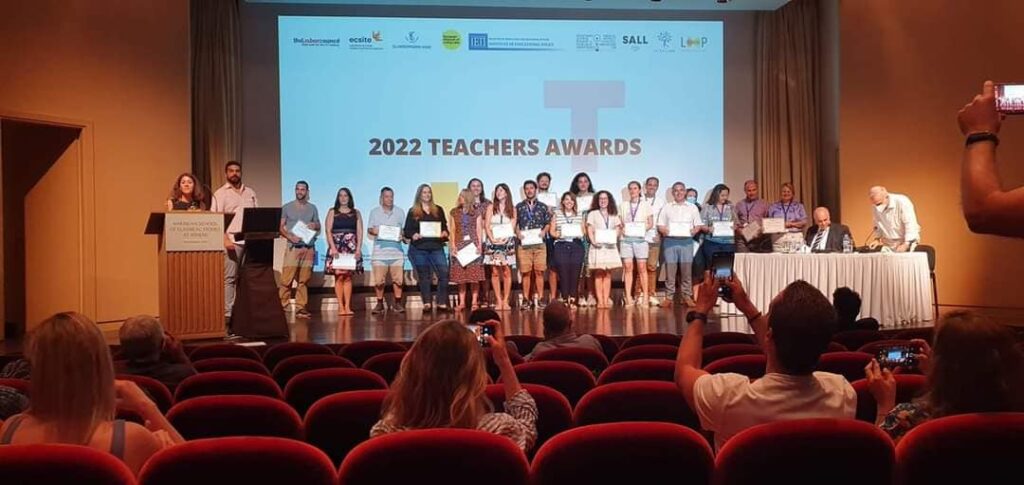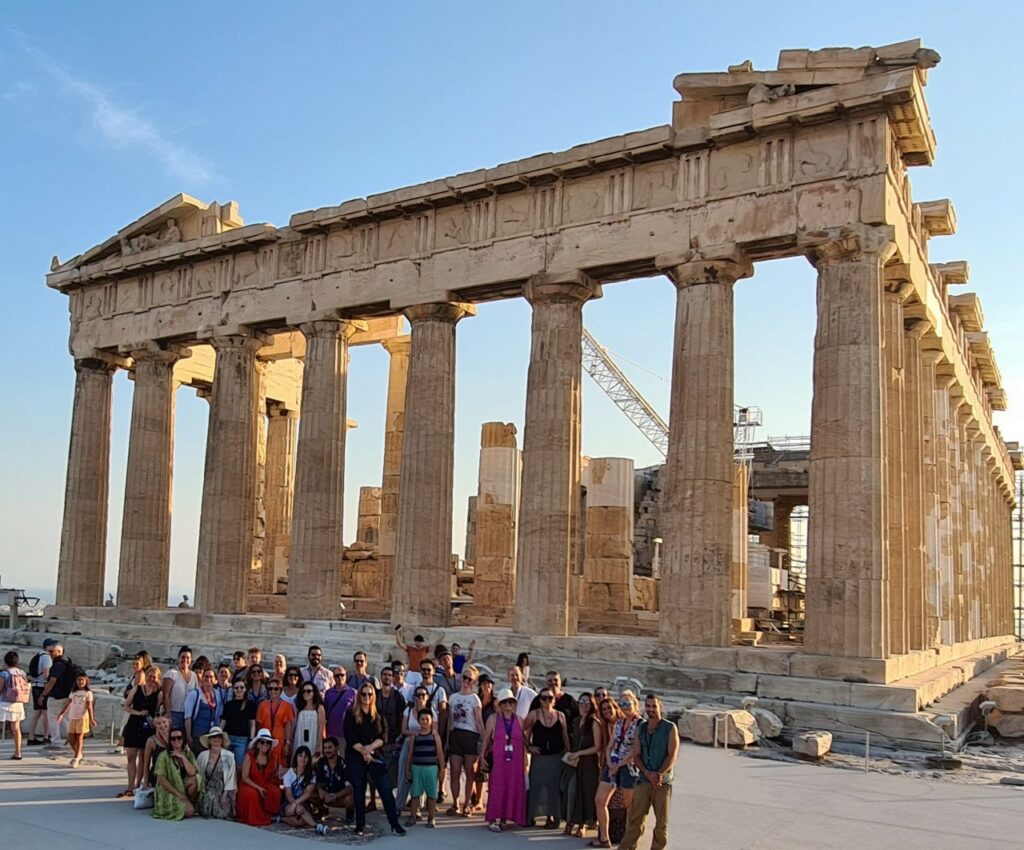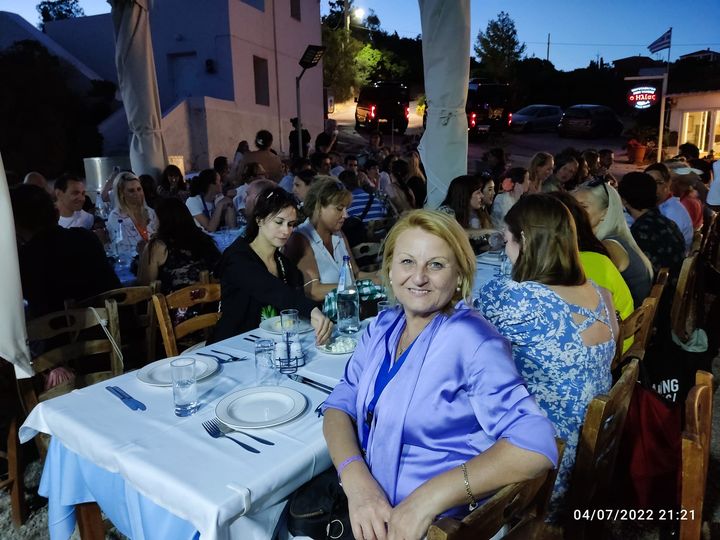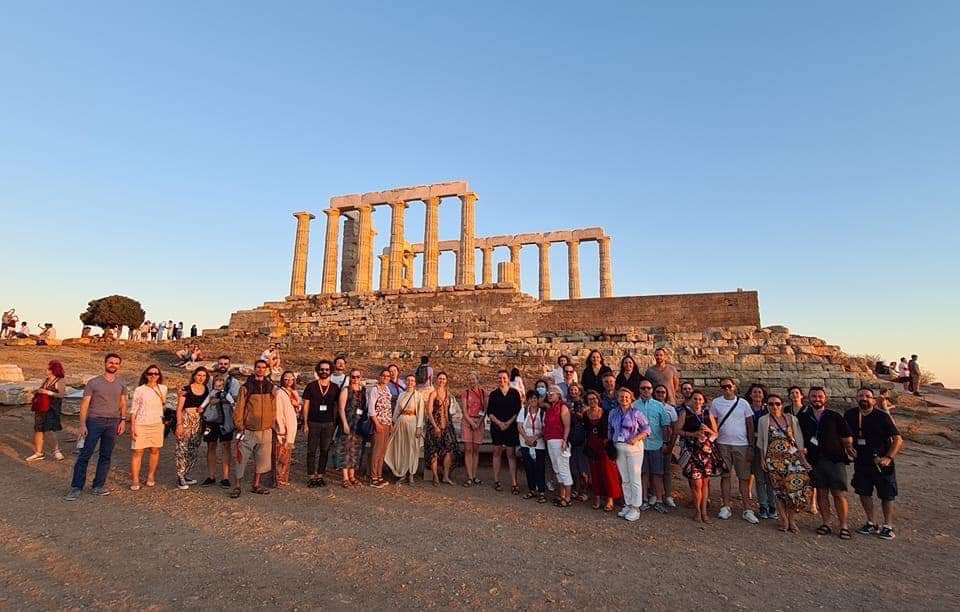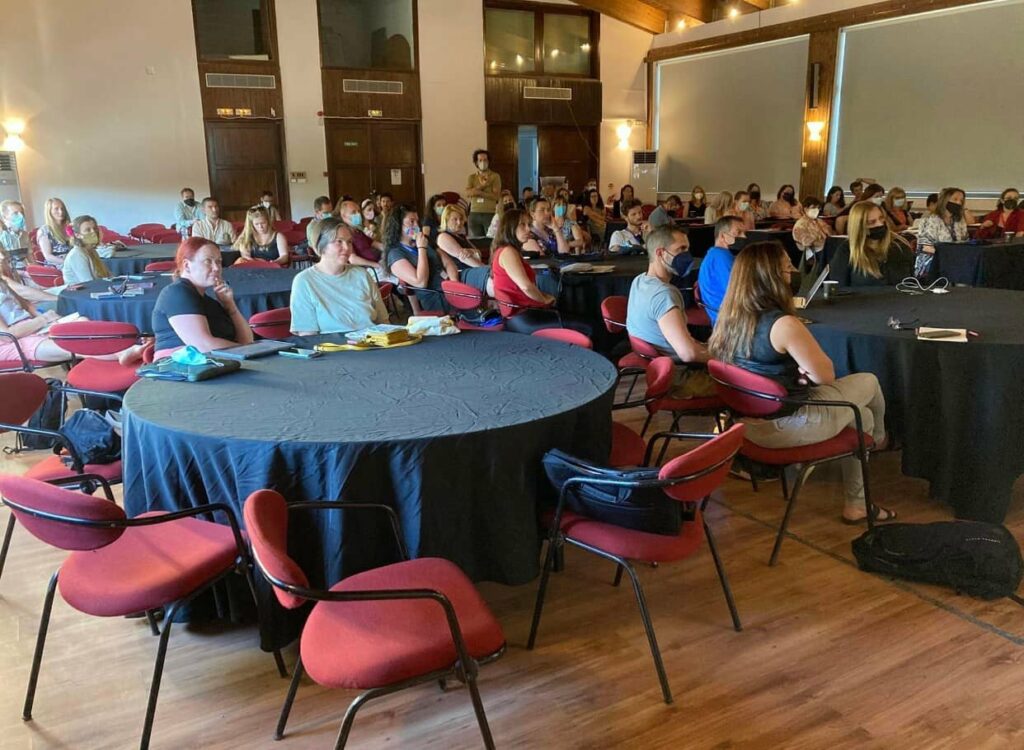The “Schools as Sites for Food System Transformation” Summer School was held on the golden beach of Marathon Bay, on the outskirts of Athens. The objective was to familiarize participants with the open schooling and living labs methodologies, which offer school administrators and teachers a robust framework for engagement, discussion, and exploration of how schools might act as agents of community well-being. The summer school participants were empowered to design tailored open schooling projects, using the living-lab methodology and linked to the food system theme, a very topical challenge. Teachers will later implement these projects in their schools.
It all started on a Sunday evening, after a refreshing swim in the sea next to the summer school venue. The day was dedicated to the keynote talks that established the foundations on which the whole methodology would be based in the following days. First, Dr. Sofoklis Sotiriou of EA opened the evening by presenting the purpose of applying the “Open Schooling” concept to natural sciences and STEM learning, focusing on thematic areas linked to social challenges at all education levels. Then Dr. Pierluigi Paolucci Senior Research Scientist in Physics at Istituto Nazionale di Fisica Nucleare and CERN showed how to make science with art. Creativity at its best! The next talk was by Associate Professor at Western Norway University of Applied Sciences Janne Robberstad, who demonstrated how to leverage students’ participation in science through art practices by organizing the group into a small and amateur opera that participants all sang happily at the end. Finally, the summer school participants had the opportunity to learn more about the EU-funded project FoodShift2030 working towards the food system transformation through citizen engagement activities by researcher Luke Schafer from the University of Copenhagen.
During the following days, the participants dived into the core of the Living Labs methodology and learned about concepts, methods, and tools to transform schools into living labs. They were introduced to the SALL methodology guiding teachers, step by step, to develop living-lab projects with their students and to connect with societal actors from their local community. Afterward, participants got inspired by a whole set of inspirational practices developed by pioneer teachers in the field. It helped them to create their own projects, on topics like circular economy, food waste prevention, or citizen science, to name a few. They presented their projects to the group and uploaded them to the SALL community platform, making them available to everyone. These projects will be implemented by the teachers, with their students, in the next school year.
Participants also exchanged ideas and experiences with living labs experts and practitioners from the European Network of Living Labs and the VITALISE project. Participants benefited from networking and peer-to-peer learning with highly experienced trainers from the Living Lab community.
The summer school was not only about talks, workshops, and co-creation sessions. Participants were offered a rich cultural programme: they visited Cape Sounio and the Temple of Poseidon to experience the Greek sunset, learn much about the rich local history, and taste the traditional Greek seafood. The highlight was most probably the visit to the Acropolis Museum and the Acropolis site. Spectacular, magnificent, and breath-taking were some of the words people whispered during the visit. The evening continued in a traditional tavern to discuss and listen to music, following the Greek way of life. Lastly, at the farewell dinner, things were going as usual: Eat – Drink – Sirtaki – Repeat. The party was on fire.
Regardless of the tiredness, everyone was in the lobby of the hotel on Friday morning to depart to join the High-Level Roundtable on Next Generation Europe: The Role of Living-Labs and Open Innovation in Education and Health, which convened in the centre of Athens. A discussion was held on facilitating the transition to more comprehensive, inclusive, and modern education and health systems. European practitioners and policymakers confirmed that the living lab approach is seen as one solution to tackle today’s biggest European challenges.
The summer school ended with the award ceremony rewarding the participants for their hard work and their commitment to implement the SALL methodology in their school in the next school year. Stay tuned!
